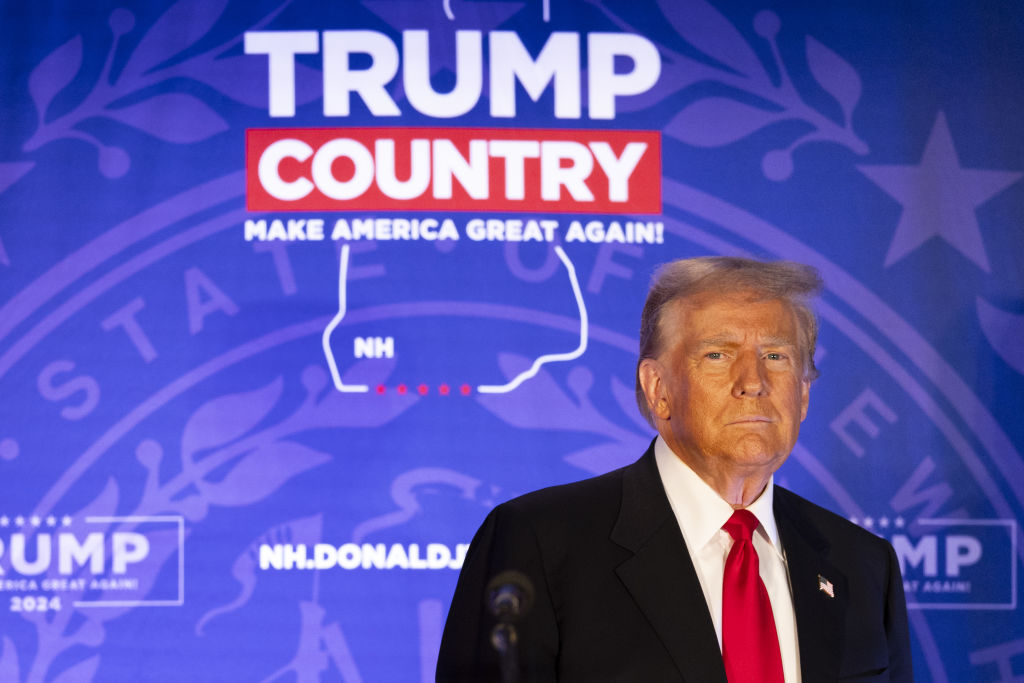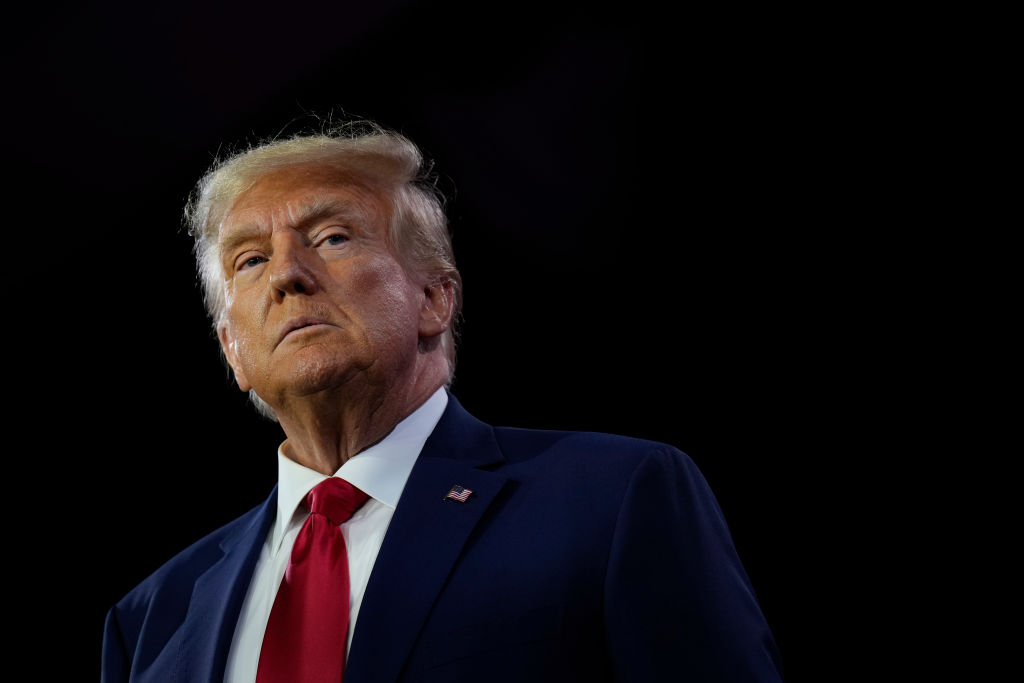From civil rights to privacy, the 14th Amendment has been a foundation for forging the norms of American law and democracy. But one of its provisions, adopted after the Civil War in 1868, has gotten almost no attention until now: That’s Section 3, the part that’s meant to keep former officeholders who “engaged in insurrection” from ever regaining power.
The Supreme Court on Thursday will be taking its first look at the insurrection clause in a case in which the stakes couldn’t be higher.
Former President Donald Trump is the leading candidate for the Republican presidential nomination. But Republican and unaffiliated voters in Colorado argue that Trump is disqualified from being president again because he engaged in insurrection by trying to overturn his loss in the 2020 election, culminating in the Jan. 6, 2021, attack on the U.S. Capitol. The Colorado case was one of several filed around the country seeking to block Trump from state ballots.
The voters say that if Trump can’t be president again, he shouldn’t be on the ballot, and the Colorado Supreme Court agreed in a first-of-its kind decision.
The case seems certain to bring on a collision of law and politics that the Supreme Court typically likes to avoid, but in this case, cannot ignore.
Trump appealed the Colorado ruling and that case will be argued on Thursday. The issue has come up elsewhere, but Colorado’s court is the only one to rule against the former president. Maine’s Democratic secretary of state also has determined that Trump shouldn’t be on that state’s primary ballot. Both the Maine and Colorado decisions are on hold pending the outcome in the Supreme Court.
The justices will be dealing with a handful of legal issues that include whether Trump did, in fact, engage in insurrection and whether the presidency is covered by the constitutional provision at issue.
Here is a look at the issues the court will confront:
What will the Supreme Court decide?
Get a weekly recap of the latest San Francisco Bay Area housing news. >Sign up for NBC Bay Area’s Housing Deconstructed newsletter.
There are several ways in which the court could avoid a definitive ruling, even though both sides say it's vitally important for the court to make a final decision now about Trump's eligibility for the ballot.
The justices could issue a ruling that applies only to Colorado or say the issue is not yet ripe for a decision.
They also could conclude that the political branches of government and voters, and not the court, should decide whether to put Trump on the ballot.
Trump's attorneys raise the prospect of a national checkerboard of presidential elections if the issue is left to politicians, where some states' leaders might allow voters to choose the likely Republican nominee and some might not.
Attorneys for the voters trying to remove Trump from the ballot argue that the question is too important to be left to politics. It's one of following the plain language of the Constitution, which applies to everyone, regardless of how much political support they may have.
Still, there's a way for the court to toss the question to one group of politicians that would work slightly differently.
Does Congress have a say?
Section 3 allows Congress to restore someone’s eligibility by a two-thirds vote. But it says nothing about whether Congress has to do anything at the start of the process, before states can start applying the provision.
In 1869, after many people were already barred from office under the measure, Salmon Chase, the then-chief justice of the United States, found that there has to be congressional legislation creating a process to find someone covered by Section 3. Chase was acting as an appellate judge in an era when justices “rode circuit” before the creation of federal appeals courts.
A few months earlier, though, Chase took the opposite position in a case involving Jefferson Davis. Chase's contradictory assessments about Section 3, separated only by a few months, “are almost impossible to reconcile,” law professor Gerard Magliocca has written.
Trump's attorneys and allies argue Congress needs to act, rather than leaving eligibility decisions to what they contend could be partisan courts. The attorneys seeking to disqualify Trump contend that Section 3 of the 14th amendment is just like its other provisions, ready to be applied without the need for additional legislation.
Some legal experts warn that kicking the fraught issue to a politically polarized Congress is perilous. It might mean the issue is not dealt with until Jan. 6, 2025, if Trump wins at the ballot box in November and Congress has to certify his election.
That “would risk catastrophic political instability, chance disenfranchising millions of voters, and raise the possibility of public violence,” warns one friend of the court brief filed by legal experts.
Does the Amendment apply to Trump or any other candidate for president?
This is where things get technical.
Section 3 reads: “No person shall be a Senator or Representative in Congress, or elector of President and Vice-President, or hold any office, civil or military, under the United States, or under any State, who, having previously taken an oath, as a member of Congress, or as an officer of the United States, or as a member of any State legislature, or as an executive or judicial officer of any State, to support the Constitution of the United States, shall have engaged in insurrection or rebellion against the same, or given aid or comfort to the enemies thereof. But Congress may by a vote of two-thirds of each House, remove such disability.”
Notice what office isn't specifically mentioned in the text — the presidency (or vice presidency).
Trump's attorneys argue that means the provision doesn't apply to presidents. The only reference to other officials is “officer of the United States,” a term that appears elsewhere in the Constitution and, they contend, doesn't apply to the president. They also point out that the provision bars insurrectionists who took an oath to “support the Constitution.” At his inaugural, Trump pledged to “preserve, protect and defend the Constitution” in an oath “in which the word ‘support’ is nowhere to be found,” his lawyer wrote. Finally, nothing in the text says someone can't be a candidate for these offices, so the court can't ban Trump from the ballot.
The attorneys trying to remove Trump contend this is just clever wordplay. The Supreme Court, they note, has never agreed with the highly technical argument that the president is not “an officer of the United States.” The president isn't named in the text of Section 3, they argue, because the president is obviously an officer of the United States — why, they ask, would the drafters of the 14th Amendment want to bar low level oath-breakers from returning to office but allow one to become the leader of the country?
As for the oath, they wrote that dictionaries from the time of the nation's founding and Civil War era listed “support” and “defend” as synonyms for each other. If anything, they noted, “the President's oath is more demanding than mere ‘support.’”
And the core of their case is that state courts like Colorado's have a duty to ensure that only qualified candidates are on the ballot. That means they can strike Trump for violating Section 3, just as they would remove someone who didn't meet the constitutional standard of being a natural-born citizen.
Did Trump engage in insurrection?
This might be the least technical of all the aspects of the case, but it also is highly contested.
Relying on the work of the congressional committee that investigated the Jan. 6 attack, the lawyers arguing to keep Trump off the ballot recite volumes of evidence of Trump's actions that they say incited the deadly attack, including his speech on that same day in which he urged supporters to “fight like hell.”
They note that, in the post-Civil War period, Section 3 was used against not only people who fought for the Confederacy but against those who organized on its behalf and even issued rhetorical support for the uprising.
Trump's attorneys counter that the congressional Jan. 6 report is one-sided and that Trump in no way “engaged” in insurrection. They argue he didn't enter the Capitol, didn't tell his supporters to be violent and called for them to be peaceful at one point in his speech on the Ellipse and then in two subsequent tweets.
Instead, Trump's lawyers argue, the president was simply engaging in free speech to talk about an election he honestly believed had been stolen from him.
This is the most politically significant portion of the case. Even if the high court lets Trump stay on the ballot, the decision could play a major part in this year's presidential campaign, if it has anything to say about Trump's culpability for Jan. 6.
___
Riccardi reported from Denver.



